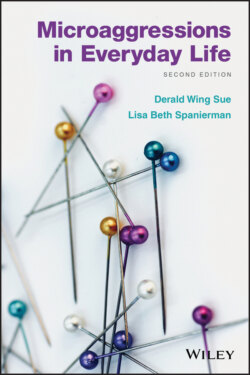Читать книгу Microaggressions in Everyday Life - Derald Wing Sue - Страница 17
Stop Making Mountains Out of Molehills!
ОглавлениеCritics have accused researchers of exaggerating the detrimental impact of microaggressions. As we explain throughout this book, microaggressions are constant and continuing experiences among members of marginalized groups in our society. If they happened just once or twice in a lifetime, perhaps targets could laugh or shrug them off. However, as Essed (1991) and others have suggested, these subtle exchanges are daily experiences. They are commonplace. Their cumulative nature assails the self‐esteem of targets, produces anger and frustration, depletes psychic energy, lowers feelings of subjective well‐being and worthiness, affects sleep duration, produces physical health problems, shortens life expectancy, and leads to suicidal ideation (Hollingsworth et al., 2017; Nadal, Griffin, Wong, Hamit, & Rasmus, 2014; Nadal, Wong, Griffin, Davidoff, & Sriken, 2014; Ong, Cerrada, Lee, & Williams, 2017; Solórzano et al., 2000; D. W. Sue, Capodilupo, & Holder, 2008; Williams, Neighbors, & Jackson, 2003; Wong‐Padoongpatt, Zane, Okazaki, & Saw, 2017; Yoo & Lee, 2008).
Oftentimes undergirding efforts to trivialize and minimize microaggressions theory and research are notions that perpetrators neither want to change nor share their dominant‐group privileges with others. We have seen this among our White colleagues manifested in statements of moral superiority, such as “I could have interpreted your comment as an ageist microaggression toward me, but I didn't. Why are you so hypersensitive?”
